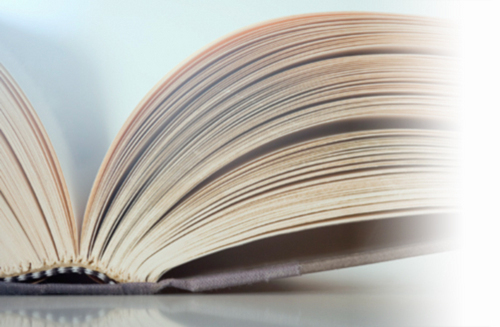John Derbyshire, columnist, essayist, critic, raconteur, has an opinion. On everything, it seems. Thankfully, he is not shy about sharing them, and was kind enough to speak with me by phone one afternoon.
In addition to wearing the above listed hats, Derbyshire has also written a strange and wonderful little novel called Seeing Calvin Coolidge in a Dream, a book described in the New York Times as, “a bouncy, Capraesque tale of midlife crisis, romantic confusion and spiritual regeneration.” (The Times review was so favorable that it puts the conceit that conservative authors can’t get a fair shake from the liberal media in a good bit of jeopardy).
I asked Derbyshire about Coolidge, the writing of which he recounts with both fondness and exasperation, with decided emphasis on the former. He claims that writing fiction puts one in a state of “aesthetic bliss” (to paraphrase Nabachov), the prime virtue of which is an expansion of perspective that “…separates you from the everyday world.” He tells me that writing a good novel gives one a pleasure many times that of reading a good novel, which, if true, must be a high state of bliss indeed.
Concerning modern poetry, Derbyshire tells me that “most of it is rubbish,” and leftist rubbish at that. Concerning the New Formalists, he seems somewhat ambivalent. The New Formalists, he says, are “not that formal,” and, in any case, “…art has to change, and some changes are dead ends.”
In prose, Derbyshire sees the prospects for conservative authors as not altogether bleak. Like Michael Blowhard, he points out that while mainstream fiction tends to be tied to the Academy, and therefore liberal, in genre fiction the story is something else entirely.
Bill Buckley, he notes, wrote tons of excellent spy novels, starting in 1976 with Saving the Queen, the beginning of the long running and popular Blackford Oakes series. Tom Clancy, best-selling author of political thrillers like The Hunt for Red October, is a decidedly center-right author who has reportedly given large sums to the Republican Party. Science-fiction superstar Robert Heinlein was a Goldwater libertarian – in fact, Reason magazine said of Heinlein in 2007, “As a literary influence on the emerging libertarian movement, Heinlein was second only to [Ayn] Rand.”
Derbyshire could have added Dean Koontz to his list, the best-selling author of science fiction, horror, and suspense novels who as a young man worked for the Goldwater campaign, and who in 2008 was the subject of a favorable write up in National Review in which he was referred to as a “compassionate conservative.” Or Michael Crichton, the science fiction writer (Jurassic Park) who in recent years outraged the liberal establishment with his frank and devastating critique of global warming orthodoxy in his novel State of Fear and in his address to the National Press Club in 2005 titled “The Case for Skepticism on Global Warming,” the text of which is to be highly recommended and may be found in full at Crichton’s official site. (Mr. Crichton has sadly left us, succumbing to throat cancer in November 2008.)
So genre fiction can be welcoming waters for conservatives. In poetry and drama, however, Derbyshire concedes that conservative authors may have a tougher time, especially in the theater, where “it will always be easier to put on a left wing play.” Nonetheless, he says, “…conservatives can be poets and dramatists…the reign of the Bohemians is over.”
Ultimately, however, Derbyshire is of the opinion that political correctness rules in the big publishing houses, and that editors “enforce it ruthlessly.” The silver lining is that “publishers want to make money,” and fortunately there is no shortage of openly conservative authors, O’Reilly, Coulter, et al, who have shown that there exists in North America a vast purchasing audience for “right wing” ideas and opinions.
Andrew (last name withheld), a New York based literary agent, agrees. He has been in publishing for 16 years, four of them on the editorial side, the balance spent representing authors across the ideological spectrum. Though conceding that “no question biases are there” in publishing, nonetheless Andrew insists that there are plenty of liberal editors who can and do rise above their prejudices and work with conservative authors.
Andrew insists that the success of conservative non-fiction authors proves that the situation of conservatives in publishing is “healthy,” though he concedes that “most novelists lean left.” Why that would be so is a topic that we didn’t have time to get in to, but Andrew, who describes himself as a left-leaning centrist, hopes that “more conservatives gravitate towards” the arts and literature, because there is a need for “thoughtful books from both sides” of the aisle.
During my discussion with Andrew, the subject turns to the fear of many conservative authors that they will be ostracized or blacklisted for their views. As an example, I ask him about the harsh reaction to David Mamet’s recent political conversion. “Oh, yes, that was unfortunate,” he says, though Andrew correctly points out that ostracism is a phenomena that knows no ideology per se.
Tomorrow we will examine Mamet’s fascinating political coming out, and ask what it means for conservatism in the literary world.
[Ed. note: You can read a new chapter of this eight-part series every Saturday and Sunday morning. Previous chapters –Part one, two, three, and four.]
Matt Patterson is a columnist and commentator whose work has appeared in The Washington Examiner, The Baltimore Sun, and Pajamas Media. He is the author of “Union of Hearts: The Abraham Lincoln & Ann Rutledge Story.” His email is mpatterson.column@gmail.com.

COMMENTS
Please let us know if you're having issues with commenting.